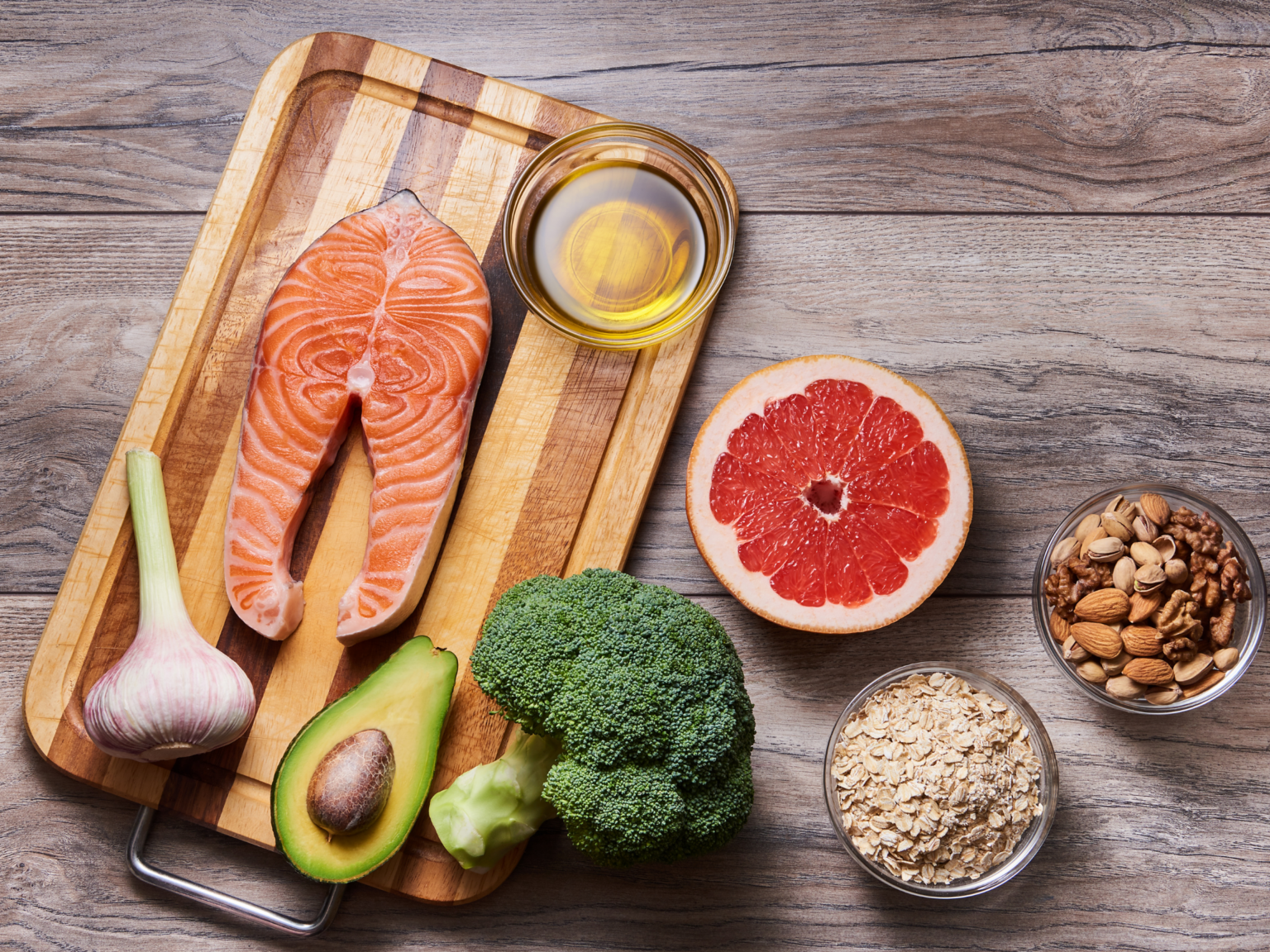Heart Healthy Substitutions
When your doctor or dietitian suggests a diet to promote heart health, they usually mention plenty of fruits and vegetables, fish, whole grains, tofu, nuts, low fat or fat-free dairy and vegetable oils. They will also tell you to limit saturated fats, sugary drinks and salt. Yet for many people who already need to avoid certain foods, due to food allergies, celiac disease, or other diet-related illnesses, another diet may seem just about impossible.
Don’t get discouraged! Think of eating heart-healthy more so as a way of eating, rather than another “diet.” Truth be told, there is no specific prescription for a heart-healthy diet; the overall idea is simply eating foods that reduce inflammation and “bad” cholesterol, while helping to increase “good” cholesterol. Similarly, you need to avoid foods that would increase inflammation or cause the buildup of plaque in the arteries. And the best news is there are plenty of gluten-free and top allergen-free foods that can assist us with this healthy goal!
Nuts
Let’s start with nuts. We know that a heart-healthy diet emphasizes nuts and nut oils. One of the major reasons behind this is that nuts are rich in healthy unsaturated fatty acids, fiber, important minerals, vitamin E, and more. If you can eat nuts or nut butters, then great! But if you have allergies to those ingredients, look for other foods with some similar nutrients: for example, chia or flax seeds. Both are rich sources of many minerals, fiber, unsaturated fats and will even have similar heart-healthy omega 3s to those found in walnuts! You can grind these seeds yourself (or buy them already ground) and then sprinkle on your food, add to baking projects, or even use as an egg substitute for most cake / muffin types of batters. One tablespoon per day is all you need for a great natural way to supplement your diet!
Fish
Fish (particularly fatty fish like salmon) is also a great source of heart-healthy omega-3 fats. In fact, it is the best way to obtain omega-3s, because the type found in fish is very easy for our body to use. Another reason is that fish is a lean source of protein that is very low in saturated fat. That said, getting a good amount of omega-3 fats with a fish allergy may be challenging, but is definitely not impossible! You can use plant-based sources, such as flax, chia, walnuts, soybeans, or canola oil.
If you have an allergy to finned fish only, you can substitute shellfish, such as shrimp. Seafood won’t have as much omega-3s as fatty fishes will, but it is a great source nevertheless! If you have to avoid both finned fish and shellfish, you can use plant-based sources discussed earlier and look for other sources of heart-healthy proteins, such as nuts, seeds, beans, lentils, low fat dairy, tofu, and poultry. Omega-3 supplements are also an option. Talk to your dietitian or physician to see if you can take vegan algae-based supplements; however, keep in mind that this is an extra expense that most people won’t need.
Eggs
Eggs have previously developed a bad reputation as a food that can raise your cholesterol. However, recent research shows that moderate consumption of eggs has little to no effect on cholesterol levels. Additionally, eggs are a great source of various nutrients. As such, if you don’t have an egg allergy, use them – in moderation – as your source of protein, opting for boiled or scrambled eggs instead of frying (to avoid extra fat from cooking). If you do have an egg allergy, there are plenty of other options to get good proteins, so do not worry.
Dairy
Dairy is not emphasized in a heart healthy diet. In fact, current research on this topic is quite controversial and scientists have conflicting opinions. Overall, it seems that milk or dairy products, such as yogurt, kefir, or cheese, have no effect on heart health. Therefore, if you can have dairy, it is recommended to focus on low-fat milk and fermented dairy (such as yogurt) as great sources of protein, calcium and other essential nutrients. If you are allergic to dairy, you can easily substitute it with fortified soy milk. If you are allergic to soy as well, get in touch with a dietitian to help you find similar nutrients in other foods.
Fruits, Vegetables, Whole Grains
Lastly, fruits, vegetables, and whole grains are at the core of a heart-healthy diet, as they are rich in various antioxidants and have an ability to slow down or prevent atherosclerosis (the buildup of plaque that clogs your arteries)! The variety of these foods given to us by nature is so plentiful that you can easily find suitable options for your table while avoiding allergens and gluten if needed. Strawberries, oranges, broccoli, carrots, sweet potatoes, leafy greens…you choose!
Go for a variety of whole grains too. If you have celiac disease and have to avoid gluten, be especially careful. Many gluten-free packaged foods contain highly refined (or heavily processed) grains that will be missing most of the heart-healthy nutrients. Moreover, buying whole grain gluten-free breads or pancake mixes may be challenging, as it is either hard to find or the cost is high. But no worries! You can add whole grains to your diet by focusing on side dishes instead! To pair with your main dish of a lean cut of meat or fish, beans, or lentils, serve buckwheat, millet, sorghum, brown rice, amaranth, quinoa, or any other whole gluten-free grain you can find.
Some online sources claim that certain “superfoods” are all you need to stay healthy; but remember, no single fruit, vegetable, or grain has everything, or is inherently “better” than others. Choose seasonal varieties to save money and try to aim for as many different types and colors as possible. Why, you may ask? Different colors mean different kinds of nutrients, and of course it is also more fun to eat! So be sure to add to your plate plenty of fruits and vegetables of your choice (can be fresh, frozen or canned) and you will make a beautiful, heart-healthy, allergen-free, and gluten-free meal!


